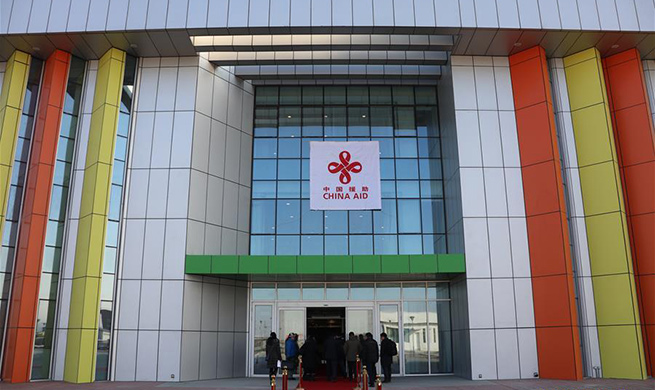JERUSALEM, Jan. 24 (Xinhua) -- Israeli scientists have identified a rare gene that plays a crucial role in repairing nerve cells which may lead to new treatments for nervous systems' damages, Weizmann Institute of Science in central Israel reported on Thursday.
Protein-coding genes often work in different tissues and conditions, so changing their activity can cure a disease but cause unwanted side effects.
The gene identified by the scientists, however, belongs to the genes that don't encode proteins. Among them are the IncRNAs (Long non-coding RNAs) - those that are replicated to control molecules.
These genes are dedicated specialists, tending to be expressed only in specific tissues and circumstances. They are involved, for example, in controlling cell growth and division.
After nerve injury, neurons in the peripheral nervous system can re-generate by re-growing extensions, but neurons in the central nervous system (the brain and spinal cord) do not have this ability.
The scientists found in mice experiments that about a week after an injury, when the nerve was re-growing vigorously, expression of a particular lncRNA gene soared tenfold.
They then discovered that this gene, which they named "Silc1," activates a unique regeneration program that repairs damage to the sciatic nerve.
It turned out that Slic1 triggers a healing program in which a nearby gene, known to play a role in re-growth of nerve cells only, but not in other types of injuries.
When they enhanced the expression of the gene in neurons in a laboratory dish, the growth of extensions from these cells increased by 40 percent compared with that from unmanipulated neurons.
The "specialist" status of Silc1 may help in developing targeted nerve repair therapies that won't cause unwanted side effects.

















